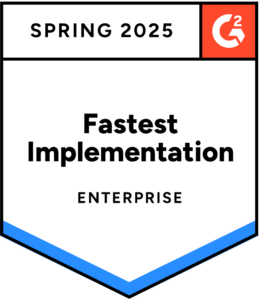3 Benefits Cloud Computing Brings to the Office of Finance
Blog post
Share
The Cloud is here to stay, and if organizations aren’t already strategizing and implementing their moves to the Cloud, then they are likely falling behind their competitors.
But what are the benefits of cloud computing, and why should the office of finance commit to implementing cloud technologies within their processes? Here are three benefits finance teams gain from the use of cloud technology.
1. Optimizing IT Resources
Organizations that utilize cloud technologies tend to be more agile than those who must devote IT resources to managing their infrastructure. The Cloud increases the productivity of your IT team by allowing them to devote more time and energy towards advancing new projects, instead of constantly handling traditional IT issues and upkeep. Another benefit of cloud software is the lower initial costs compared to the numerous costs of acquiring traditional IT equipment. And, if your organization requires more bandwidth at any time, a cloud-based service can meet that demand quickly. However, with traditional IT hardware, updates to the infrastructure end up being complex and expensive.
2. Cloud Security
Studies have shown that most data breaches involve on-premise environments, rather than cloud technology, and very few data attacks on the Cloud are successful. Additionally, public cloud Infrastructure-as-a-Service (IaaS) workloads will be a victim of at least 60% fewer security attacks than those in a traditional data center through the end of 2020. However, the question to be asked shouldn’t be “Is the cloud safe?”, but rather “Are we using the Cloud securely?” Thought leaders, like Gartner, have stated that organizations need to develop a plan to ensure that they’re using their cloud technology securely.
A few aspects that should be included in your IT team’s cloud security plan are enlisting the support of leadership to endorse your cloud project, considering your risk and compliance issues, and being meticulous about your choice of CSP. Developing a strategic plan for your cloud project going forward, taking all relevant concerns into account, will help to further decrease the chances of a successful cyberattack on your data. Giving into the myth that the Cloud is less secure than an on-premise solution only results in lost opportunities and misguided spending.
3. Business Continuity with a Virtual Close
In uncertain times like these, the flexibility that a solution with cloud computing offers is invaluable. Data stored in the Cloud is constantly available no matter where your employees are located, as long as your finance team has an internet connection. Virtually completing your financial close is automatically easier with the Cloud, especially in large-scale virtual environments, and Cloud capabilities offer features that on-site storage does not. For example, the Cloud allows your team to communicate more easily outside of traditional methods, as well as store relevant documents with each task, so that everybody is equipped and up-to date on the status of closing tasks. Your close must be completed no matter the circumstance and Cloud capabilities simplify, rather than further complicate, that process.
Bring the Cloud to Your Financials
The benefits that the Cloud brings are more than worth the resources finance and IT teams have to contribute to implement the new technology. Adopting cloud-based platforms is a necessary step towards keeping your organization’s competitive edge.
Trintech solutions offer cloud capabilities that enhance the productivity of your financial processes, automatically tracking documentation and workflow processes that serve your audit purposes, as well as your internal control framework. Our solutions offer data security, and the assurance that your close will be completed from wherever your finance team is located.






